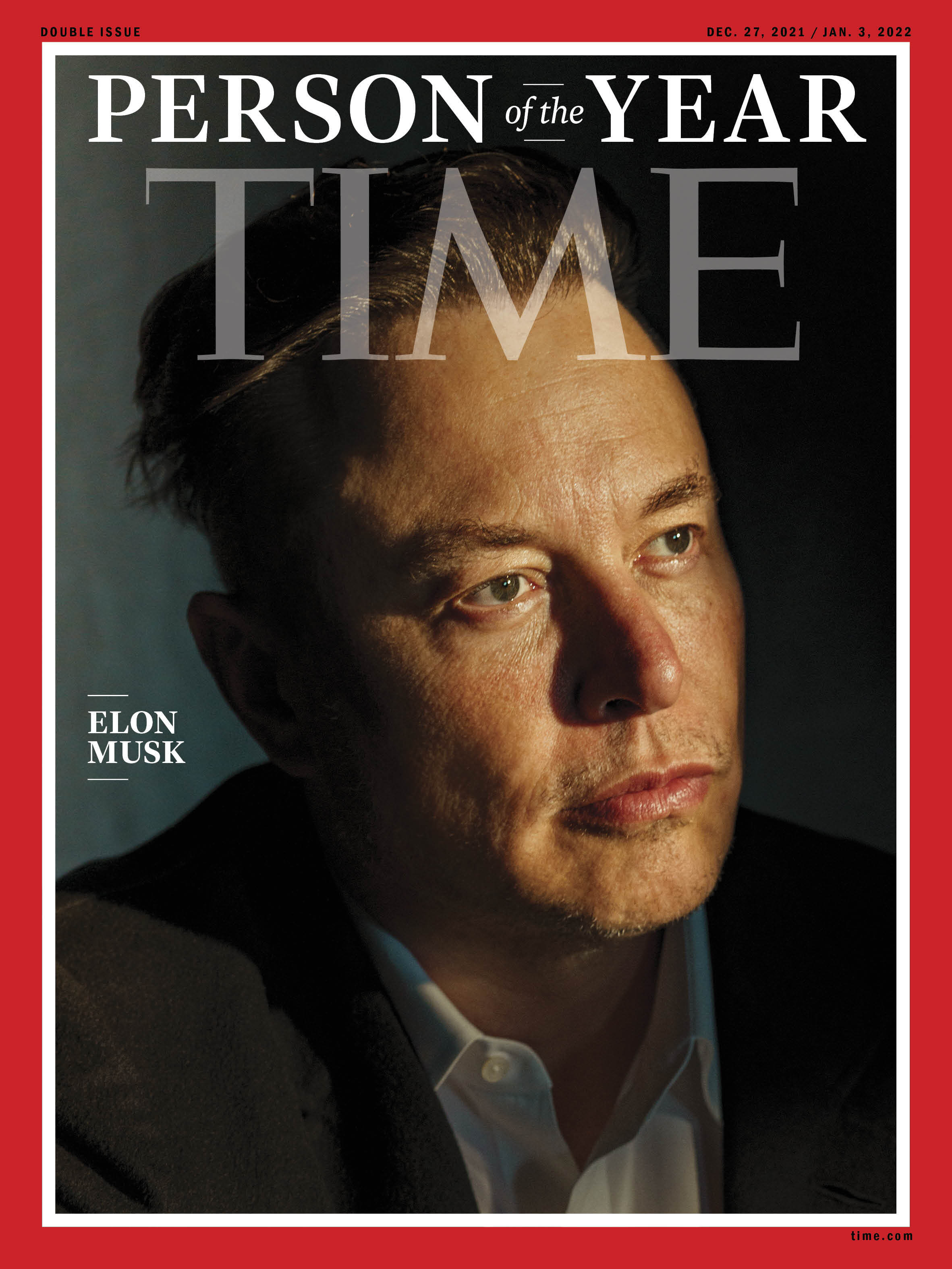This article is part of the The DC Brief, TIME’s politics newsletter. Sign up here to get stories like this sent to your inbox every weekday.
It’s Elon Musk’s world. We’re just living in it.
That’s the take-away from this year’s selection of the billionaire innovator as TIME’s Person of the Year, a role our newsroom has been deciding for almost a century without distinction for good or evil. The pick, announced today, is sure to rile up anyone worried about the rising inequality in our world as the uber-rich toy with the markets with tweets sent from bathrooms, the celebrity that accompanies disruption and the porous roles between government and private enterprise. For Musk’s die-hard supporters, which are legion, it will feel long overdue.
Musk’s Tesla, which now carrying a higher value than General Motors and Ford combined, remade the electric and self-driving car market. His SpaceX program has lapped NASA, so much so that America’s astronauts now hitch rides on his vehicles. And his peculiar indifference to the Establishment has made him a favorite target of those in power. As TIME’s team on his project note, Musk “bends governments and industry to the force of his ambition.”
So why should Washington care about this pick? Just a few years ago, Musk was largely written off as a fringe eccentric on the verge of poverty. Now, he’s leading the consideration of Earth’s Plan B, a Noah’s Ark into the heavens should this planet turn uninhabitable. His plan is to have a shuttle going to Mars within five years, as though it’s as common as the LaGuardia-Reagan shuttle that runs hourly between New York and D.C. As our editor in chief, Edward Felsenthal, writes, Musk is “the man who aspires to save our planet and get us a new one to inhabit.”

In the meantime, Musk is one of the few humans with the capacity to function as a one-man government. He’s the richest private person on the planet, although he jokes that Russians’ Vladimir Putin probably has him beat in wealth and certainly in military might. He is cozying up to China’s autocratic regime in order to grease his company’s expansion. His ambition has tested the limits of regulation; his cars’ auto-pilot function is under investigation from feds who want to know why there are so many Tesla crashes involving parked vehicles. And his companies deserve tough scrutiny in this town, especially when it comes to how they treat workers and, to some eyes, how they—and he as an individual—dodge taxes.
The world’s new class of billionaire masters of the universe is set to challenge the old ways of doing things, and TIME’s Person of the Year franchise has a history of capturing them, as we did in 1999 with Jeff Bezos and in 2010 with Mark Zuckerberg. At some point, these figures get simply too large to be curbed by government and stand aside heads of state as power players in their own categories. No labor regulators have proven capable of matching Bezos’ near-monopoly on e-commerce, and campaign finance regulations could not counter the power of social media in recent elections. Musk says he wants to steer capital away from government and into private hands that, in his view, can do more good than any bureaucrat.
In a post-pandemic world, such ambition and moxy may define the human race’s future. And that’s why TIME picked Musk as its Person of the Year.
Make sense of what matters in Washington. Sign up for the daily D.C. Brief newsletter.
More Must-Reads from TIME
- Caitlin Clark Is TIME's 2024 Athlete of the Year
- Where Trump 2.0 Will Differ From 1.0
- Is Intermittent Fasting Good or Bad for You?
- The 100 Must-Read Books of 2024
- Column: If Optimism Feels Ridiculous Now, Try Hope
- The Future of Climate Action Is Trade Policy
- FX’s Say Nothing Is the Must-Watch Political Thriller of 2024
- Merle Bombardieri Is Helping People Make the Baby Decision
Write to Philip Elliott at philip.elliott@time.com